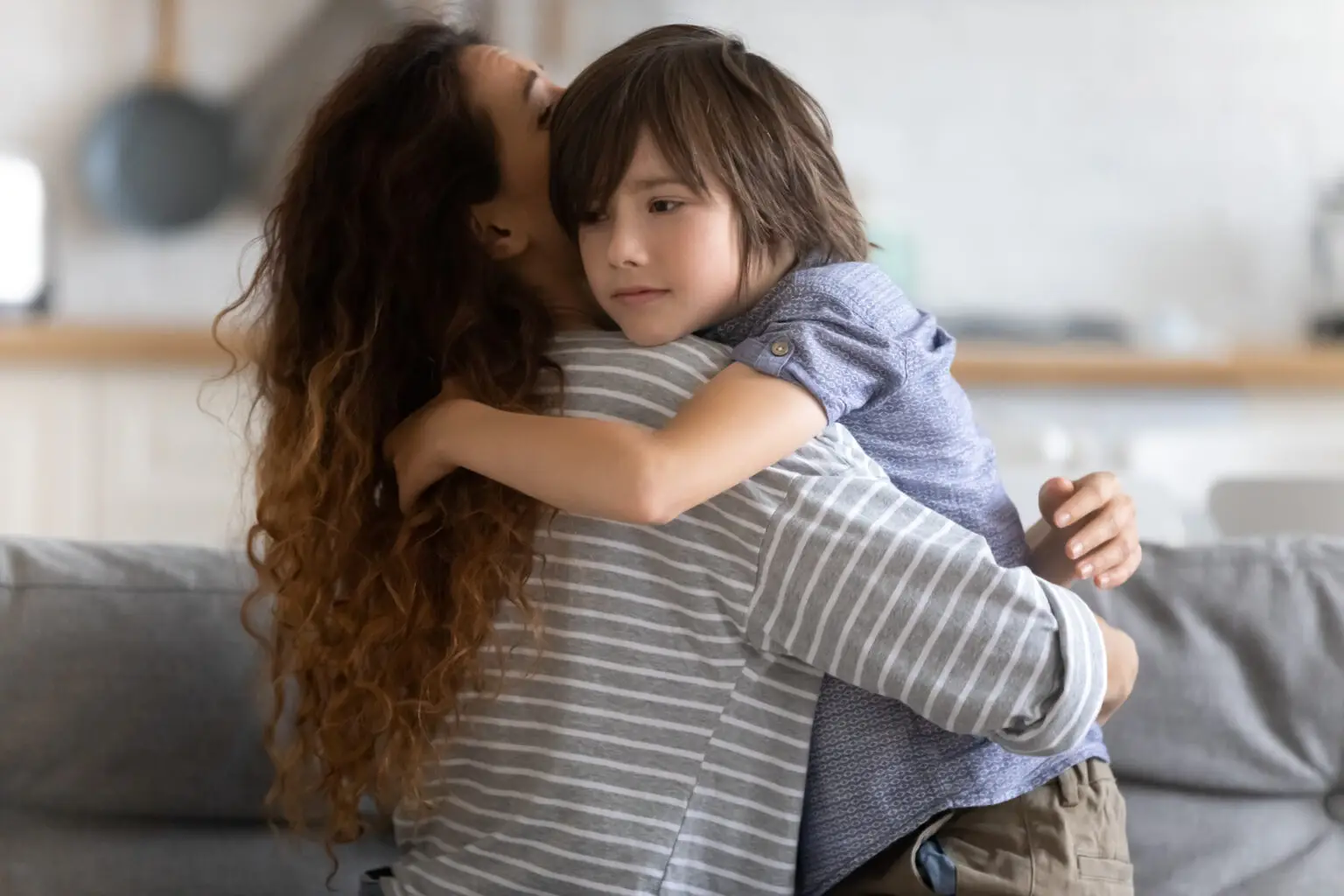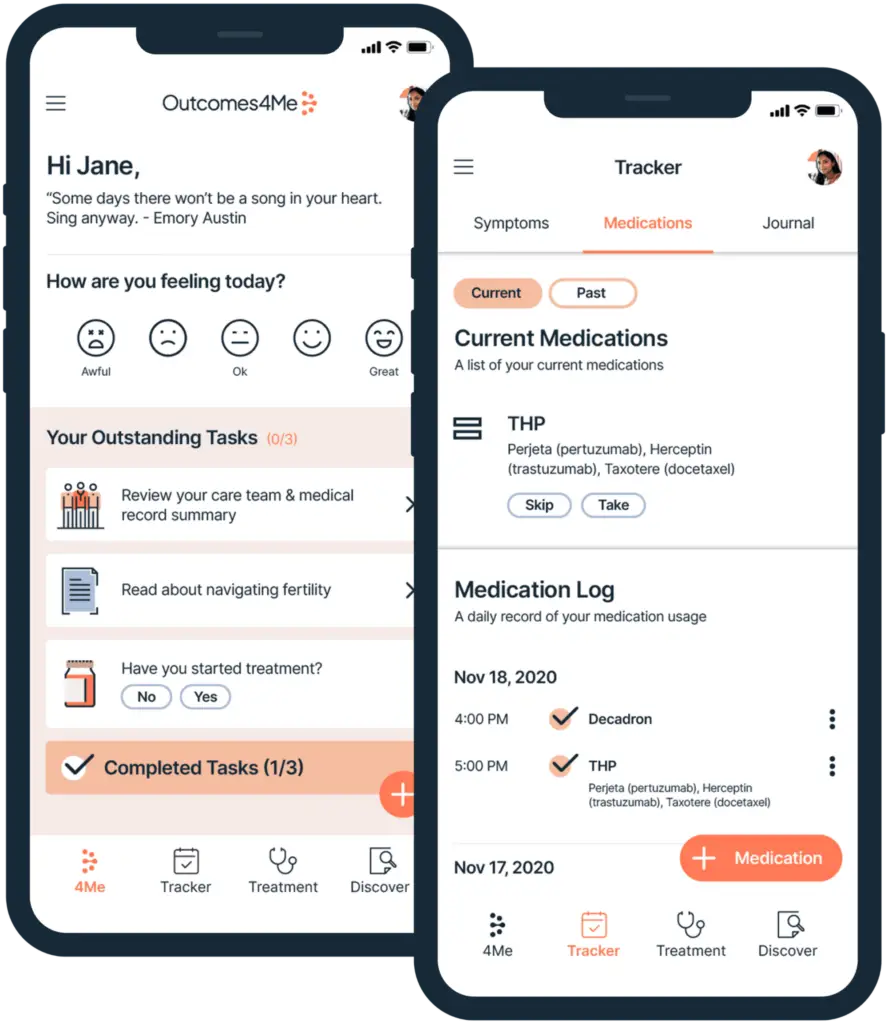A cancer diagnosis can be a difficult thing for adults to wrap their heads around and can be even more challenging for a child to understand. No one wants to have a conversation about themselves or a loved one being diagnosed with cancer with a child, but they deserve to know what is going on and why their family life or social life may experience some changes.
We’re going to look at how you can approach talking about cancer through the lens of a parent who has been diagnosed, but these tips can also serve parents who need to tell their children about the diagnosis of a loved one such as a grandparent, sibling, or close family friend.
Talking About the Diagnosis
While it can be very tempting to hide scary things from your children, they may know something is wrong before you inform them of your cancer diagnosis. Kids are very perceptive and including them in your diagnosis can help maintain trust in your relationship and help them feel less afraid. As an added bonus, you’ll take a lot of stress and worry off your plate by having this understandably dreaded conversation.
Here’s a few tips for making telling your children about your cancer diagnosis or the diagnosis of a loved one easier:
- Do some prep work. Spend some time thinking about how you want to share this news with your children. You may want to write down some talking points or practice what you have to say while you’re alone.
- Find a support system. You can have this conversation alone, but you may find it helpful to have a spouse, family member, or friend join you so you have some support during this difficult conversation.
- Tell all children close together. If you have multiple children you may choose to have this conversation as a family or you may want to speak with each child individually. If you choose to go the individual route, it’s best to still tell all of your kids in a relatively short time period so none of your children feel like they need to keep secrets from their siblings.
- Stay calm and reassuring. Take some time to come to terms with your diagnosis so that you can have this conversation as calmly as possible. Your children may not fully understand what you’re telling them if they’re young or may hear the word cancer and automatically associate it with very negative outcomes. Try to reassure them that you’re getting the medical attention you need and that your family will work through this together.
- Validate their feelings. As tempting as it is to tell an upset child that everything will be okay, if your child begins to get upset or cry you can validate those feelings instead of trying to push them away with happy thoughts. If your child gets very emotional you can always stop the conversation and tell them they can come to you with any questions later.
- Keep their age in mind. One reason some parents may choose to speak to each child individually is if there is a large age gap between their children. You may need to plan how to have these conversations differently so that you relay the information in an age appropriate way. Using simple and concrete terminology can help with younger children. You don’t need to get into the weeds here. You can inform them you are sick with an illness called cancer, that it’s not contagious and they can’t catch it, and that you’re getting the medical care you need to get better.
Talking About the Treatment
You don’t want to overwhelm your children by throwing a lot of information at them at once which is why you may wait to have a second conversation later about what your treatment may involve. If they ask you about treatment during your initial conversation you can walk them through a condensed version of what to expect, but may want to save some of the more intense details until later.
Here’s a few things to keep in mind when discussing your treatment.
- Let them know how treatment will affect their routines. For example, if someone else will be picking them up for school or if you will be traveling for treatment, let them know what their schedule and sources of care will look like.
- Inform them of side effects. The side effects of cancer treatment can be scary and confusing for children. You may experience weight loss, nausea, rashes, and hair loss—all of which children may notice and find frightening. Giving your child a heads up about any expected side effects and informing them that it’s a perfectly normal part of your treatment—which is helping you heal—will make the side effects less shocking for them.
- Give them easy ways to help. You should let your child know that they don’t need to take care of you, but if you have a child who finds helping you gives them a sense of control and some comfort, let them know some small things they can do to help like walking the dog, emptying the dishwasher, or just watching a movie with you when you’re feeling tired from treatment.
Resources
Parents dealing with cancer will need ongoing support for their children after these initial conversations. Here are a few resources you can turn to for extra help.
- Kesem. This organization creates experiences and a lasting community to support children through and beyond their parent’s cancer. Through their community they help thousands of children facing the challenges of a parent’s cancer by giving them ways to escape the sadness and isolation that cancer creates by connecting them with peers who understand and are able to provide comfort and support.
- Cancer Hates Kisses.Conversations about cancer can be really hard to have with young children who can’t quite conceptualize or understand what they’re telling you. Reading your child a children’s book about cancer can make it easier for them to work through their feelings and to make sense of what’s happening. “Cancer Hates Kisses” is an empowering picture book that gives parents an honest yet spirited way to share this difficult experience with their kids.
- Oncology Social Workers.Most medical centers offer counseling services for families struggling with cancer. You may find that a cancer diagnosis is something that your family needs additional support to cope with. Attending group therapy as a family or providing your child or teenager with mental health resources during this difficult time can make a huge impact and an oncology social worker can help you find the right resources.
- In this interview Kirstin Kalles, TNBC survivor and mom to 3 young kids shares what worked for their family. “Like most aspects of parenting, there are no absolute right or wrongs but being honest and helping them express their emotions go far to help young kids feel secure.”




